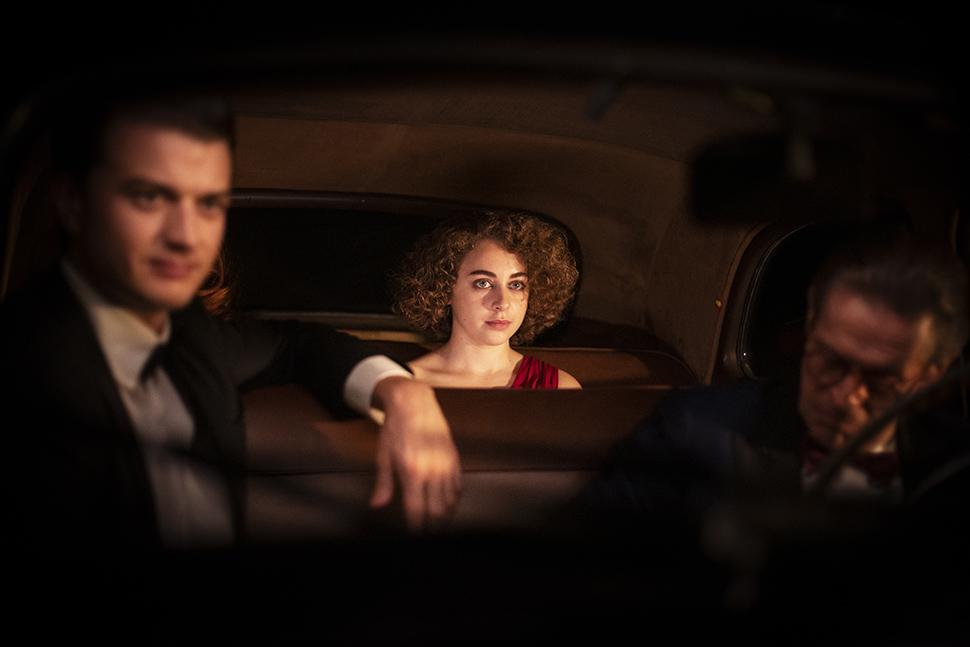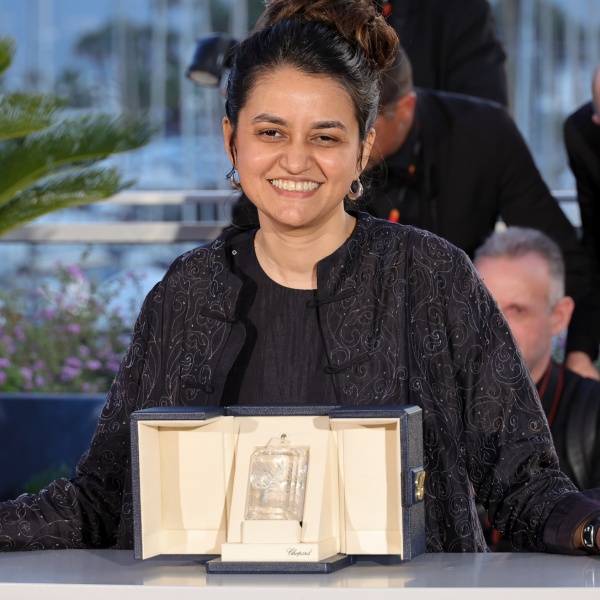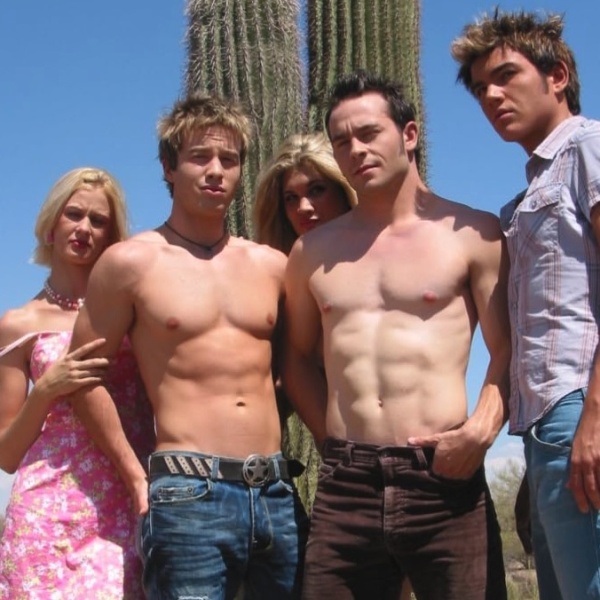Many native critics have bemoaned the invasion of English-speaking actors turning their hand to the Italian tongue at this year’s Venice Film Festival, easy to spot not, this time, by their proclivity for adding both onion and garlic to a sugo or cream to a carbonara. In this case, it’s Joe Keery, Willem Dafoe, and Lily James in the baffling competition title “Finalmente l’alba,” (“Finally Dawn”), which mixes Italian and American actors in Rome’s booming “Hollywood on the Tiber” era, during which the Cinecittà Studios was a breeding ground for large-scale productions of the 1950s and ’60s such as “Ben Hur” and “Cleopatra.”
Beginning as a “Babylon”-esque tale about the unmitigated heft and mania of epic filmmaking in Rome before becoming a quasi-murder mystery, and then, ultimately, a loss-of-innocence bildungsroman for one of cinema’s least memorable protagonists, Saverio Costanzo’s driverless feature seems to constantly make us ask ourselves the question: Why does any of this matter, and why should we care?
It begins in the war, where a Nazi has cornered actress Alida Valli (Alba Rohrwacher), who is playing an Italian woman in hiding that must protect a young girl in her care. The SS soldier shoots her dead, but the young girl escapes and runs into the tear-brimming eyes of a soldier. As the credits roll, we soon realize that we’ve been watching a film-within-a-film as an audience of Romans fill our screens, including sisters Iris (Sofia Panizzi) and Mimosa (Rebecca Antonaci).
While Iris is confident and curvaceous, Mimosa dresses like she has raided nonna’s closet, with a crippling shyness, a frizzy mop of hair and an apologetic, hangdog expression. Of course it’s Iris, not Mimosa, who is scouted as an extra by a caddish man in town to shoot a hacky Ancient Egypt picture, only for little Mimosa — obsessed with the movies — to tag along.
What follows is a confusing and often nonsensical odyssey through one night that starts on a movie set and ends with a CGI lion walking along the streets of Rome to the sound of “Last Nite” by The Strokes. Mimosa appears to resemble a girl who was just found dead on a Capocotta beach: a girl who may or may not have been an extra on the same film. Either way, Mimosa seems to trigger intense emotions in all who she interacts with; she even helps the film’s star, Josephine Esperanta (Lily James), produce tears for a crucial scene just through the power of eye contact. For this (unexplained and unexplored) reason, Josephine takes a sordid interest in the teenager and insists she joins her for the wrap party.
Lily James, often cast in girl-next-door or English rose roles, doesn’t quite convince as a glamorous and neurotic Hollywood starlet, her motives for lavishing Mimosa with praise and then cruelly embarrassing her in front of the attending guests frustratingly unclear. Is she a diva with a soft interior? An unhinged loose canon? A murderess? A vulnerable woman with an achilles’ heel for poor young things?
“Finalmente l’alba” never knows how to resolve her motives, nor that of Josephine’s co-star Sean Lockwood (Joe Keery, patently not charming enough to convince as a matinée idol), or even Priori (Willem Dafoe), Josephine’s handler, who seems to be looking out for Mimosa while also continually placing her in danger. The less said about Rachel Sennott — who seems to be acting in an entirely different movie to everybody else as an actress playing second fiddle to Josephine — the better.
And perhaps it isn’t Antonaci’s fault that the character of Mimosa is so painfully uncompelling; maybe it’s Constanzo’s script that demands her to be perpetually blank-faced, her agonizing silences before every line slowing the pace of this already long film into infinity. As her nightmare evening progresses, Costanzo seems to be throwing more and more ideas at the page with the growing desperation of adding new toppings to mask a bad pizza. She’s too scared to speak to anyone but readily accepts cocaine. She’s terrified of the advances of a seedy partygoer, yet is happy to lose her virginity to a dreamy actor minutes after she’s just heard someone being raped. This bundle of contradictions only exacerbates what is already an irritating, almost pitiable heroine.
Despite the handsome €28 million budget lavishly erecting Cinecittà back to its glory days and adorning the scenes in Capocotta’s stately home with a rich, perfumed musk, the film often feels crudely shot and uninspiring, drowning characters’ repetitive shot-reverse shot conversations in an ugly shallow focus and lighting their faces poorly in the evening scenes until all details of the expensive production design are lost. I’m not quite sure how this group of actors came together or how any of the ideas coalesce into something that a) makes sense or b) is meant to make us feel anything. It’s impenetrable with no intellect: a true curio in the worst way.
Grade: C
“Finalmente I’alba” premiered at the 2023 Venice Film Festival. It is currently seeking U.S. distribution.




